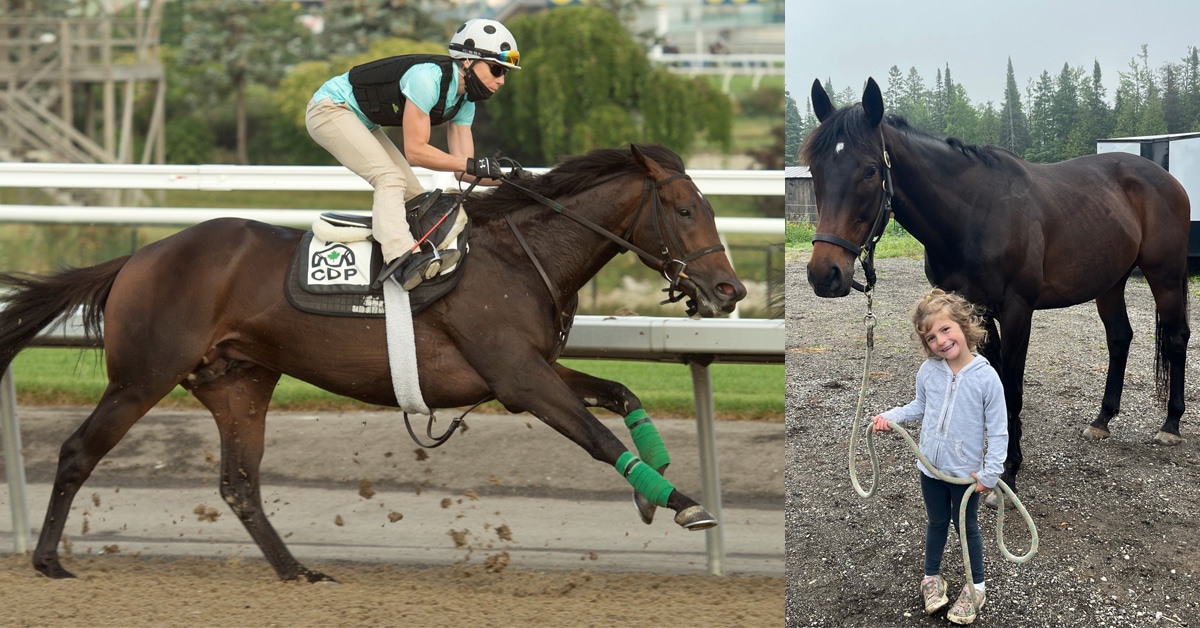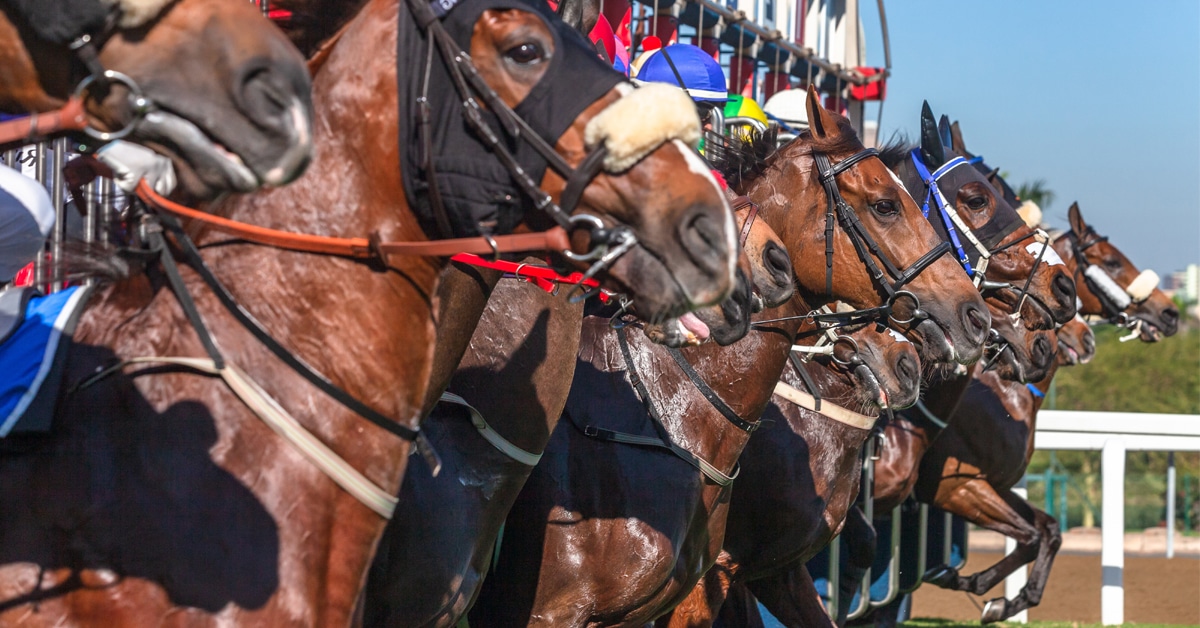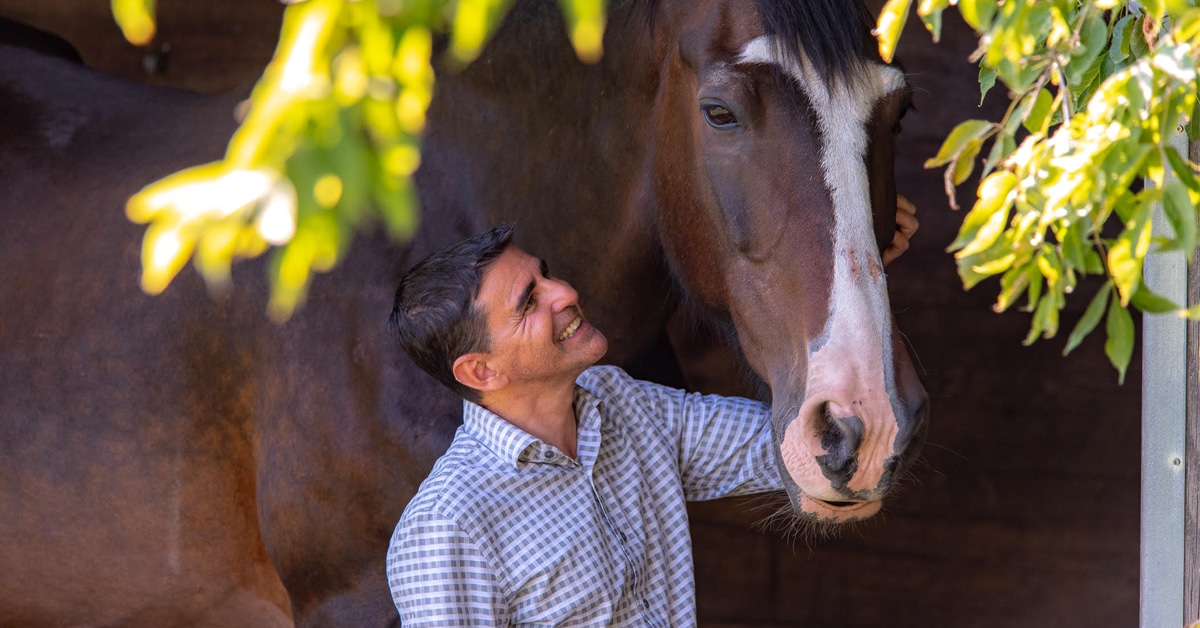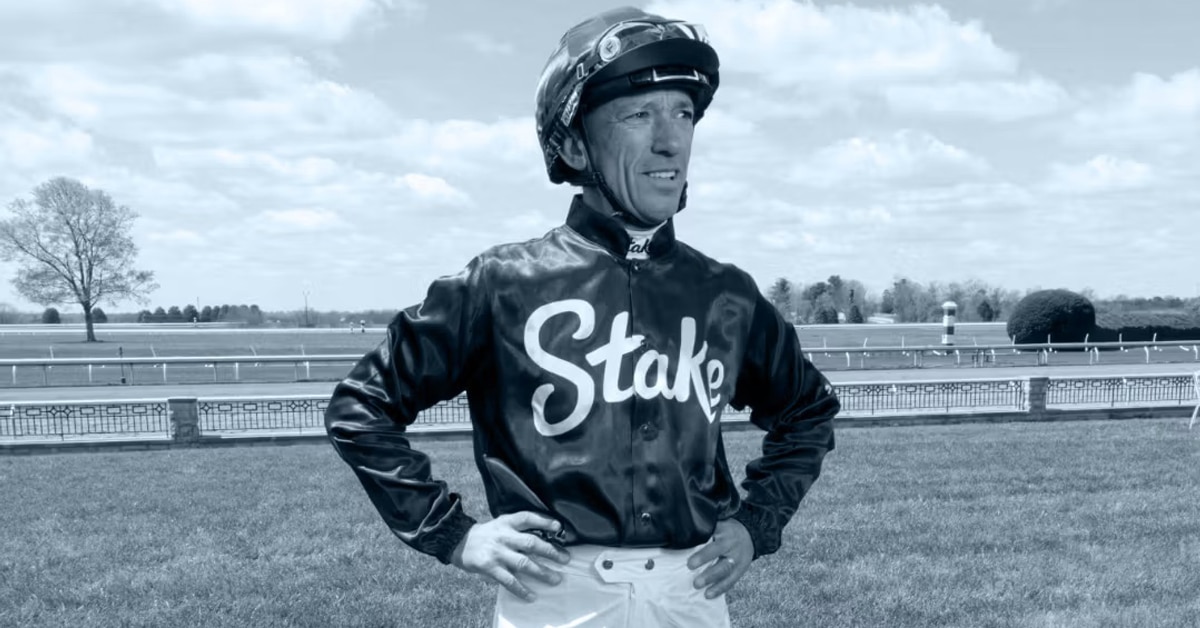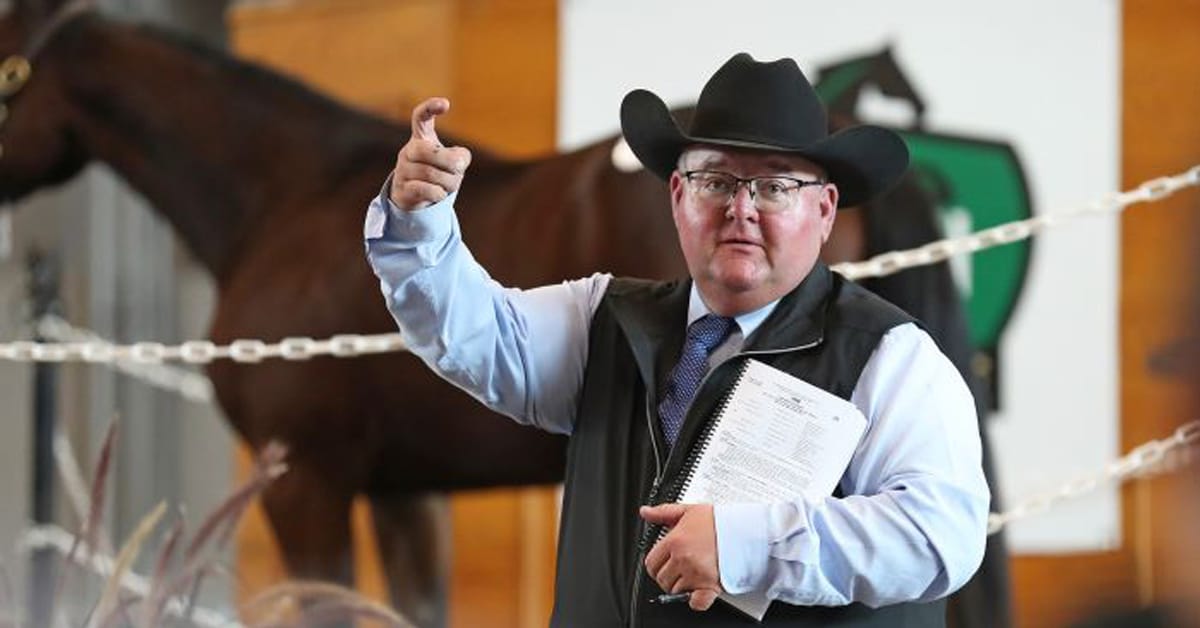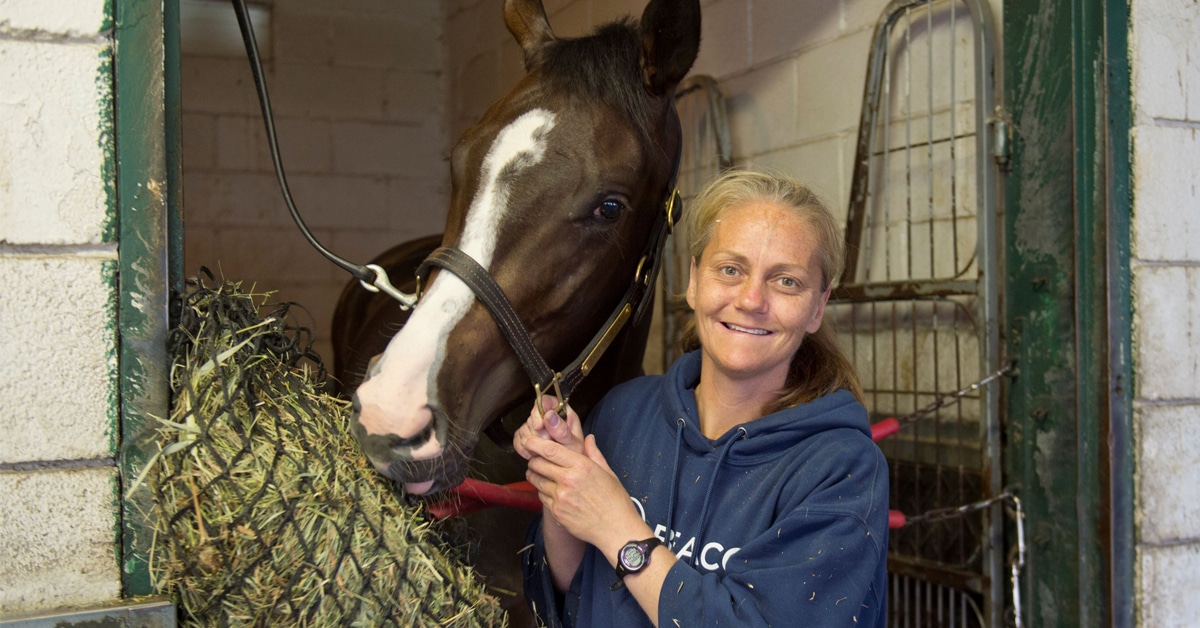When famed Ontario breeder and Woodbine board member Bob Anderson died in 2010, his son, David, went against the norm and opted to reinvest heavily in Anderson Farms of St. Thomas.
David Anderson doesn’t consider himself an aberration or a trend bucker, just a man that loves thoroughbreds and the farm near St. Thomas, ON where he spent his childhood. While conventional wisdom suggests the death of a farm patriarch frequently spells the end of the farm itself due to heirs either disinterested or ill-equipped to carry on the operation, Anderson, 45, did the opposite when his father Bob died in November of 2010 at the age of 64 after suffering a heart attack. “I was basically born on the farm, so I’ve been around it my whole life. I grew up with the thoroughbreds. So, that’s really my true love,” said David, explaining why he bought out his sister, Jessica Buckley, and quickly began the work of rejuvenating Anderson Farms, the 140-acre operation their father started in 1969 not far from the family-owned department store that operated for nearly 100 years in downtown St. Thomas before closing in 1989.
The Anderson family made a huge impact in the blue-collar community located due south of London. Not only did Bob’s grandfather, Robert, found the department store chain with John Northway in 1896, Robert also built the famed St. Thomas Golf & Country Club where he was a club champion. The criticallyacclaimed private Redtail Golf Club opened nearby in 1992 on a 440-acre parcel of land that originally was part of Anderson Farms.
Bob was drawn more to horses than golf or the department store business and he quickly made a name for himself with the runners. Apart from starting the farm, Bob served on the Board of Directors for the Woodbine Entertainment Group for 26 years and chaired the Thoroughbred Racing Committee and the Avelino Gomez Memorial Foundation. He was also the past national and Ontario president of the Canadian Thoroughbred Horse Society (CTHS), a Steward of the Jockey Club of Canada and a board member of the Thoroughbred Owners and Breeders Association (U.S.).
Upgrading The Mares
When David took over Anderson Farms, he culled all but a small number of the farm’s mares, purchased younger mares carrying their first or second foals and even poured money into extensive fencing, repaving the property and adding a new entrance lined with maple trees. He declined to say how much he invested in the farm other than it was “significant… We redid all the fencing and added that diamond-mesh fence. It was horribly expensive. When it was going up, I kept thinking, ‘What in the hell am I doing?’ This whole slots thing in Ontario is falling apart and here I am dumping money into this farm. I thought, ‘I’m crazy,’ but, at the end of the day, I’ve got to be proud of that operation and proud to take people there. It definitely needed a renovation. It’s been 45 years since my dad purchased the property. Some of the fence on the farm was original fence. It had its day and it was time to rejuvenate.”
Just before the Ontario government pulled the plug on the Slots at Racetracks Program (SARP), David sold off the top-notch standardbred mares he had acquired with his father and headed for Kentucky to buy new thoroughbred mares.
“At the time, the Canadian dollar was very strong. So, I thought it made a lot of sense to go down to the States and try and purchase some young mares carrying either their first or second foals. With that business model in mind, it’s a long, drawn out sort of program. You’re not that close to your money buying mares carrying their first foals, so it takes time and we’re now sort of in the years three and four. Hopefully, it’s going to start to come to fruition for us over the next year or two,” he said.
This year, Anderson Farms will breed 24 mares. “My business model is to breed to Kentucky sires and foal in Canada. So, I take advantage of that Canadian-bred badge,” David said. “The offspring are eligible to these great Canadian races that we have. I also take advantage of the TIP program, the mare residency program and I sell everything in the U.S. That’s essentially what we are. We’re market breeders. We only keep what we can’t sell. We try and generate enough cash flow to keep it afloat and make it a strong business.”
Gunning for Top 10
His goal is to be one of top 10 breeders in Ontario, but admits that will be, “very difficult. There’s some great breeders here in Ontario that have been very successful. The Sam-Sons and the Bill Grahams, Josham Farms and Yvonne Schwabe. All those people run great breeding programs. I would love to be mentioned in the same breath as those kind of people one day and we’re striving to do that,” David said.
“A year ago, I pulled out the stats from Canadian Thoroughbred and I saw Anderson Farms listed as the number 99 leading breeder in the country. I was just sick to my stomach when I saw that…
“It drove me crazy. I literally threw the magazine down on my desk. It’s not where I want to be. I want to be in the top 10. That’s where we’re hopefully headed. Recently, we had this Grade 2 winner (Seduire) at Santa Anita that is the product of our program. We have her granddam, we have the dam.”
In 2014, Anderson Farms ranked 15th among Canadian breeders with just shy of $900,000 in earnings when you combine its solo breeding credits with those it had in tandem with both Rod Ferguson and Marette Farrell, two old friends of Bob Anderson’s.
“When my dad died, (Farrell) was probably my first phone call. She’s been a lot of help in terms of matings and purchasing some of these mares,” David said. “Rod Ferguson was a wonderful, long-time partner of my dad’s. We’ve continued that relationship and we’ve bought a couple of new mares together, so Rod is keeping strong and his son and his grandson are quite involved.
“Rod and I have had many conversations and Rod’s thrilled. I don’t think anybody knew, when my dad passed so suddenly, what the transition was going to be. For me, it didn’t take much thinking. I’ve got a great farm manager in Ray Carroll. The first day I got home (after my dad died), I drove to the farm and I sat down with Ray and I said, ‘Well, Ray, what do you think?’
He said, ‘Honestly, David. I never dreamed of working anywhere else in my life.’ I said, ‘That’s all I need to hear.’”
Loyal Staff
Carroll has worked at Anderson Farms for 28 years. “He’s never worked anywhere else,” David said of Carroll. “He just turned 50. He worked for us when he was in high school part-time all the way through university. The day he graduated from university, he was working for us the next day. He’s a great guy.” David said assistant farm manager Kelly Kersey has worked at the farm for more than 20 years.
“If I didn’t have them I wouldn’t be able to be able to do what I do. I have other business interests and I’ve got to keep everything rolling and you’re only as good as the people you’ve got working for you. Ray and Kelly do an amazing job,” said David, whose main occupation is operating Phoenix Performance Products, a King City, ON-based company that makes protective vests and helmets for equestrian performance. David also owns “between 80 and 100” Percherons that are all based in Iowa, as well as some Clydesdales.
“We had Percherons when I was a kid at the farm as nurse mares for the thoroughbreds. I fell in love with them,” he said. In 2014, his Percheron mare YF Hillary’s Isabel was voted the supreme world champion at the 2014 World Percheron Congress in Springfield, MA.
But it’s thoroughbreds David said he loves most. “At the end of the day, you’ve got to love the animal and I love the animal. There’s a lot of businesses that make more sense than the thoroughbred game if you’re doing a model in business class. But, I love it. It’s what I want to do and I always want to be a part of it. I just hope I can continue to make it work,” he said. “Right now, the business looks as strong as ever, certainly in the U.S. With the Canadian dollar dropping like it is, basically, our thoroughbred inventory has gone up over 20 per cent in the last year, which makes it all wonderful.”
As for what his father would say about him carrying on the thoroughbred legacy, David said he hopes his dad would be proud. “It was really a tough loss for all of us. My dad was my best friend and when you go from speaking to someone three times a day to never speaking to them again it’s tough. There’s so many times I want to pick up the phone and call him and ask him about this horse or that horse — because I know he would know in a heartbeat the families — and I don’t have that privilege. I’m kind of going into unchartered waters on my own a bit, but I think he’d be very pleased and I’m very pleased to see the name continue on.”
The Latest
